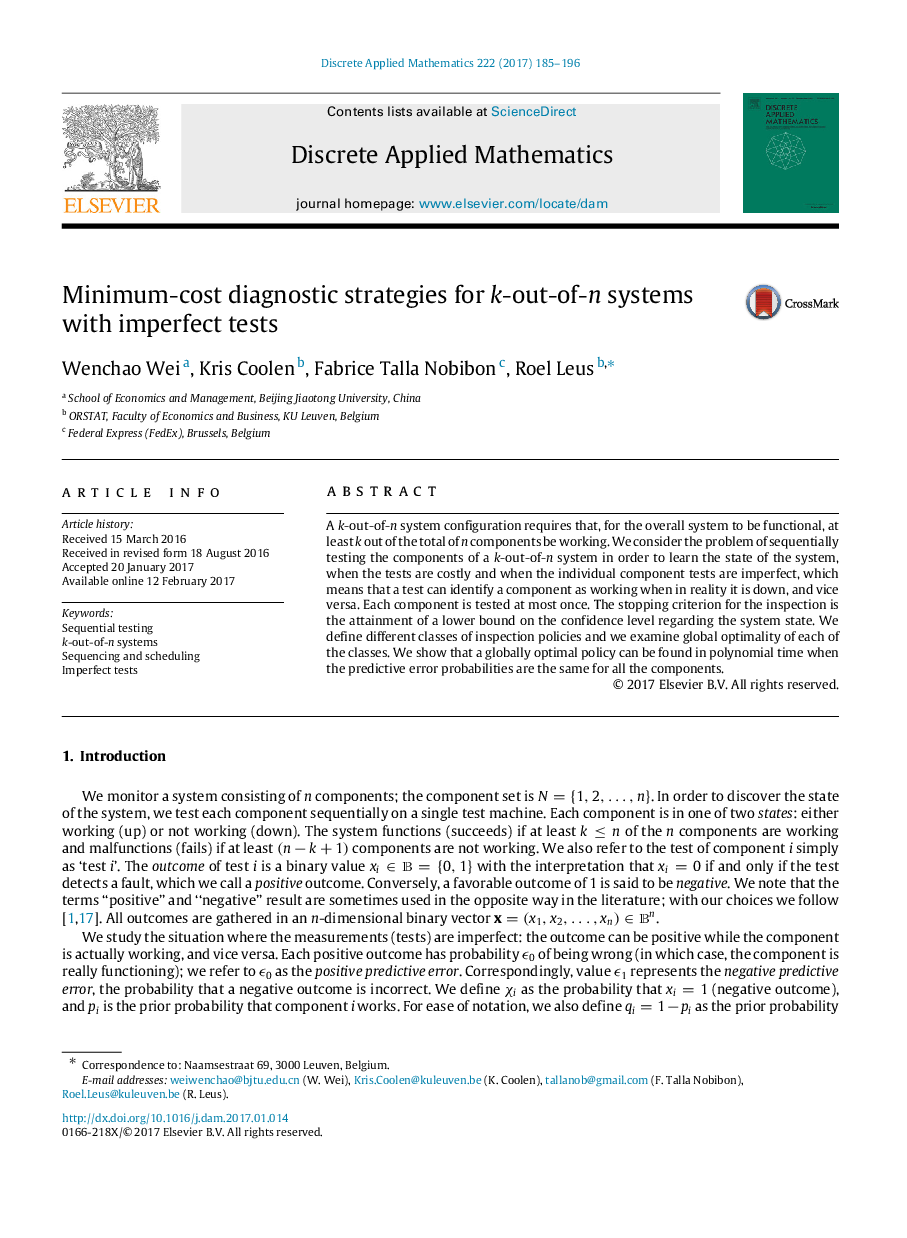| Article ID | Journal | Published Year | Pages | File Type |
|---|---|---|---|---|
| 4949658 | Discrete Applied Mathematics | 2017 | 12 Pages |
Abstract
A k-out-of-n system configuration requires that, for the overall system to be functional, at least k out of the total of n components be working. We consider the problem of sequentially testing the components of a k-out-of-n system in order to learn the state of the system, when the tests are costly and when the individual component tests are imperfect, which means that a test can identify a component as working when in reality it is down, and vice versa. Each component is tested at most once. The stopping criterion for the inspection is the attainment of a lower bound on the confidence level regarding the system state. We define different classes of inspection policies and we examine global optimality of each of the classes. We show that a globally optimal policy can be found in polynomial time when the predictive error probabilities are the same for all the components.
Related Topics
Physical Sciences and Engineering
Computer Science
Computational Theory and Mathematics
Authors
Wenchao Wei, Kris Coolen, Fabrice Talla Nobibon, Roel Leus,
